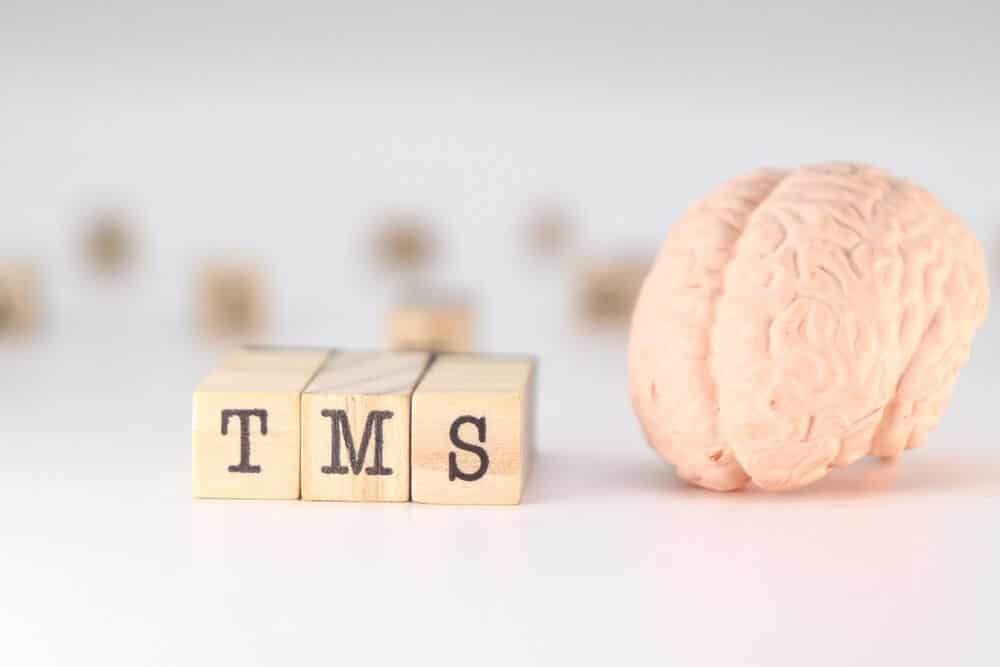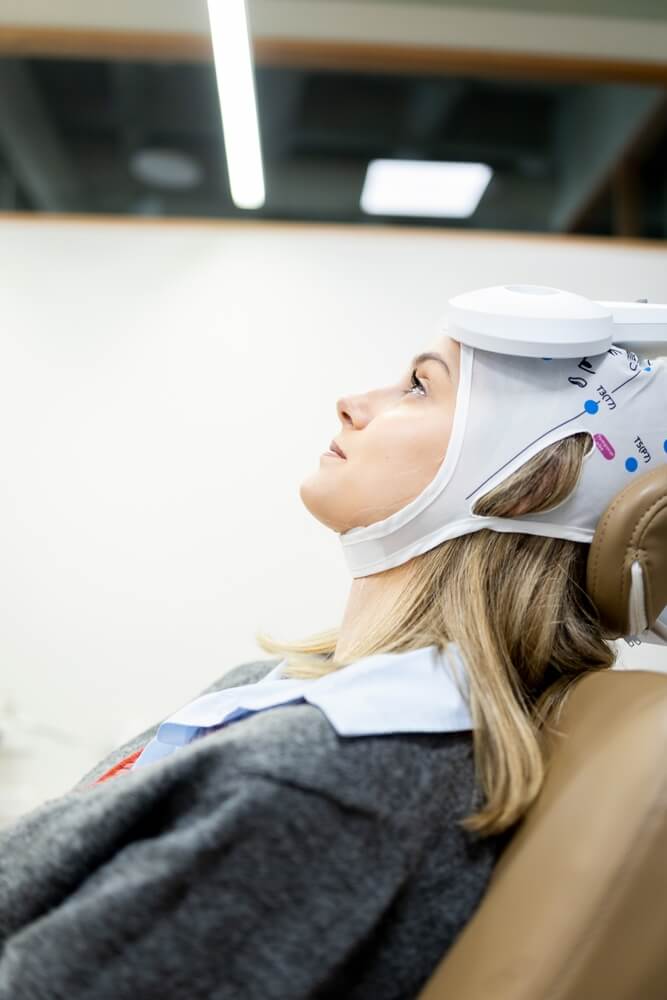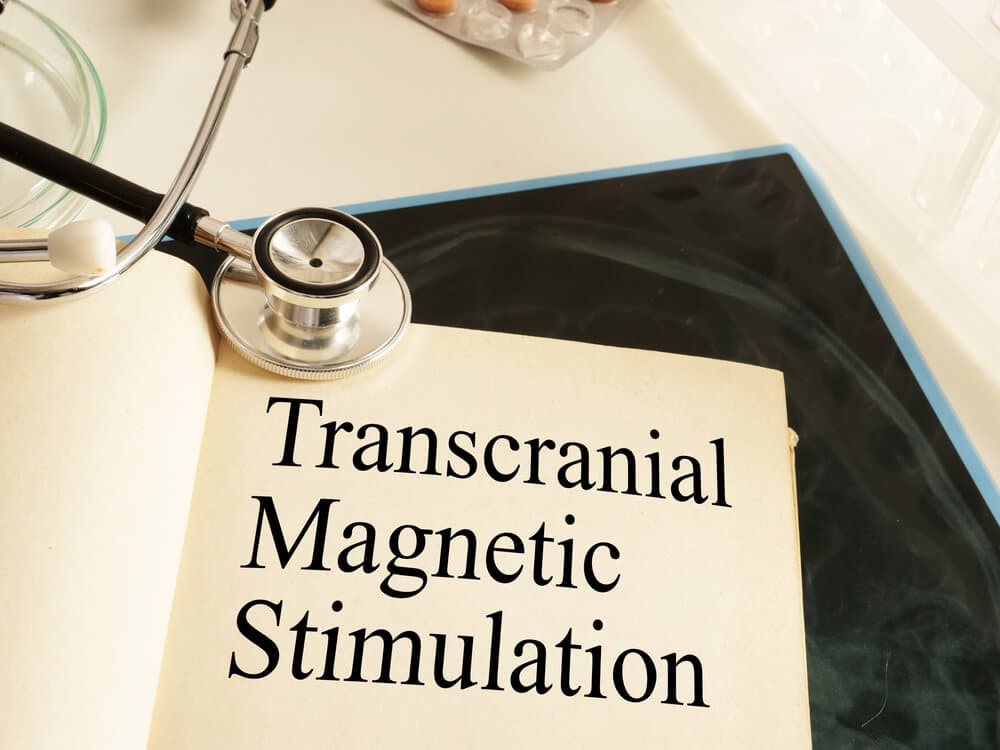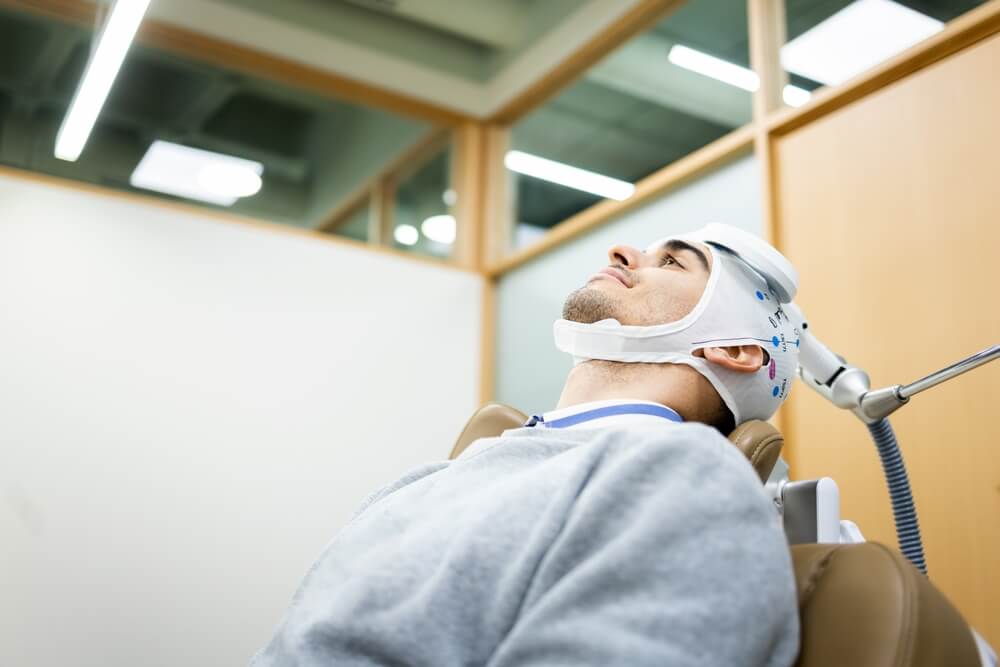We Accept Most PPO Insurance Policies
All calls and submitted forms are 100% confidential. Insurance could completely cover the cost of treatment




Transcranial Magnetic Stimulation (TMS) offers a promising non-invasive treatment approach for various mental health conditions by using magnetic fields to stimulate specific brain regions. TMS therapy in Tustin, CA, involves placing an electromagnetic coil against the scalp, which generates focused magnetic pulses that can produce neural activity in targeted areas of the brain.
The magnetic stimulation can help restore normal neural firing patterns and strengthen connections between brain regions involved in mood regulation. Clinical studies have shown that TMS can significantly reduce depressive symptoms, particularly in patients who haven’t responded well to traditional antidepressant medications.
Using TMS to treat mental health disorders has also shown potential for helping patients with anxiety disorders, obsessive-compulsive disorder, post-traumatic stress disorder, and certain aspects of bipolar disorder. The treatment’s effectiveness stems from its ability to promote neuroplasticity—the brain’s capacity to form new neural connections and reorganize existing ones.
The procedure is generally well-tolerated with minimal side effects, making it an attractive alternative for patients who cannot tolerate medication side effects or prefer non-medication interventions. While individual responses vary, many patients experience sustained improvement in symptoms following a standard course of treatment, which typically consists of daily sessions over several weeks.

Transcranial Magnetic Stimulation is a non-invasive medical procedure that uses magnetic fields to stimulate nerve cells in specific areas of the brain. The technique employs an electromagnetic coil that is placed against the patient’s scalp, typically near the forehead. When activated, this coil generates brief, focused magnetic pulses that can penetrate the skull and reach targeted brain regions, causing neurons in those areas to fire.
The magnetic field strength is similar to that used in MRI machines, but the pulses are much shorter and more localized. TMS can be delivered as single pulses, paired pulses, or in repetitive patterns, with the specific protocol depending on the therapeutic goal and the brain region being targeted.
The procedure was first developed in the 1980s as a research tool to study brain function, but it has since evolved into an FDA-approved treatment for several psychiatric conditions, most notably treatment-resistant depression. During a typical TMS session, which lasts about 30-40 minutes, patients remain awake and alert while seated in a comfortable chair. The treatment is performed in a clinical setting and doesn’t require anesthesia or sedation.
Unlike electroconvulsive therapy (ECT), TMS doesn’t cause seizures or memory loss, and patients can immediately return to their normal activities after each session. The outpatient mental health treatment program in California is typically administered daily for 4-6 weeks, though the exact duration and frequency depend on the individual patient’s needs and response to therapy.
TMS therapy treats depression by targeting specific brain regions that are underactive or dysregulated in people with major depressive disorder. The most common target is the left dorsolateral prefrontal cortex, an area involved in executive function, decision-making, and mood regulation.
When the electromagnetic coil delivers repetitive magnetic pulses to this region, it stimulates neurons to fire more frequently, essentially awakening dormant neural circuits. This increased activity can help restore the normal communication patterns between the prefrontal cortex and other brain regions involved in mood.
As the treatment progresses, patients often experience improvements in core depression symptoms such as persistent sadness, loss of interest in activities, fatigue, and difficulty concentrating. The magnetic stimulation can also help normalize disrupted sleep patterns and appetite that commonly accompany depression.
It’s important to recognize that while not everyone develops PTSD, many active duty service members and veterans may experience other mental health challenges or adjustment issues that don’t necessarily meet the clinical criteria for PTSD. These might include depression, anxiety, or adjustment disorders that still deserve attention and care.
TMS therapy works to treat depression by using targeted magnetic stimulation to reactivate underperforming brain circuits associated with mood regulation. The magnetic stimulation also triggers the release of key neurotransmitters such as serotonin, dopamine, and norepinephrine, which are often depleted or imbalanced in depression.
The therapeutic mechanism of TMS relies heavily on neuroplasticity—the brain’s ability to reorganize and form new neural connections throughout life. Each treatment session acts like a workout for specific brain circuits, gradually strengthening synaptic connections and promoting the growth of new neural pathways through repeated activation.

TMS stands out from other mental health treatments primarily due to its unique mechanism of action and non-invasive nature. Unlike psychiatric medications that work systemically throughout the body by altering neurotransmitter levels in the bloodstream, TMS provides targeted, localized stimulation directly to specific brain regions involved in mood regulation.
TMS doesn’t require patients to remember daily medication schedules or deal with drug interactions, making it particularly valuable for individuals who struggle with medication adherence or those taking multiple medications during trauma treatment or other health conditions.


During a TMS therapy session, patients can expect a straightforward, office-based procedure that typically lasts 30-40 minutes. Upon arrival, they’ll be seated in a comfortable, reclining chair similar to those used in dental offices. The technician will position the electromagnetic coil against the patient’s scalp, usually over the left side of the forehead.
Before beginning treatment, the team will determine the patient’s threshold—the minimum magnetic intensity needed to cause a small muscle twitch in the hand—which helps calibrate the appropriate treatment dose. Patients are advised to remove any metal objects like jewelry or hearing aids, and they’ll be given earplugs to protect their hearing from the loud clicking sounds the TMS machine produces during operation.
Once treatment begins, patients will feel a tapping or knocking sensation on their scalp where the coil is positioned, accompanied by rhythmic clicking sounds that correspond to the magnetic pulses being delivered. Most people describe the sensation as similar to a tapping on their head—noticeable but not particularly uncomfortable.
Patients remain fully awake and alert throughout the session and can talk with the technician, listen to music, or watch television to help pass the time. Some individuals may experience mild scalp discomfort or a slight headache during the first few sessions, but these sensations typically diminish as the body adjusts to the treatment.

Moment of Clarity operates a network of outpatient treatment centers around Southern California, providing residents looking for TMS therapy in Tustin, CA, with a bevy of options. Undergoing TMS therapy in a professional clinic at Moment of Clarity provides patients with critical safety oversight and expertise that ensures optimal treatment outcomes.
Our professional clinics are equipped with comprehensive screening protocols to identify patients who may not be suitable candidates for TMS, such as those with certain types of metal implants or seizure disorders. Our clinical staff can immediately address any side effects or complications that may arise during treatment, providing reassurance and medical support throughout the therapeutic process.
Moment of Clarity aims to give patients access to cutting-edge treatment protocols centered around evidence-based protocols. The personalized programs are adjusted based on each patient’s mental health condition. For more details on how TMS therapy in Tustin, CA, works in an outpatient setting, call Moment of Clarity at 949-625-0564 today.